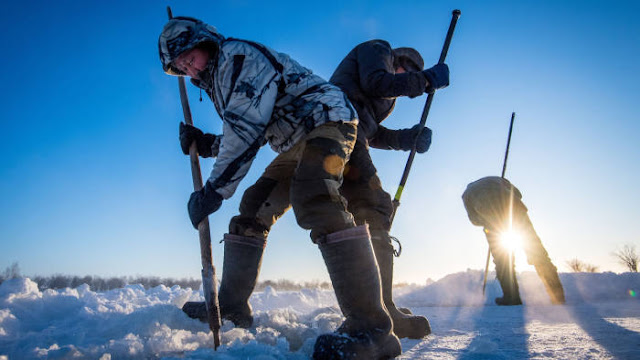The head of Russia’s largest Arctic territory has warned of “very dramatic” impacts from climate change, as Moscow comes under increasing pressure to tackle rapidly rising temperature across the country. Climate change has emerged as an important domestic issue in Russia due to the large-scale melting of permafrost in the north of the country and temperature increases that have outpaced global averages. It has created serious knock-on effects for Russia, including mass wildfires and major flooding. “The outcomes of climate change are very dramatic . . . It is too early to even say that we have already experienced all the effects,” Aysen Nikolaev, head of the federal Russian republic of Yakutia, told the Financial Times. “Our main goal is to recognise those outcomes and try to mitigate the most negative ones,” he said. But he recognised that melting Arctic ice could have positive effects for his region, by opening up to shipping the potentially lucrative sea route between Asia and Europe.
Yakutia, also called the Sakha Republic, is Russia’s largest region, but home to less than 1m people. It accounts for almost all of Russia’s diamond production and 30 per cent of the world’s annual output of the gemstones. About 40 per cent of its 3.1m sq km territory lies inside the Arctic Circle, making it one of Russia’s most at risk regions from climate change. In some parts of the region in July the temperature was as much as 6C higher than average, according to Russia’s state meteorological agency. Average temperatures in Yakutsk, the region’s capital and the world’s coldest city, have risen by around 2.5C in the past decade. “We are very concerned about the problems of the Arctic . . . and promoting those globally,” said Mr Nikolaev, a former banker and local politician who was mayor of Yakutsk before taking control of the region last year. “People take a lot out of nature. Now is the time to give back to nature.”
Rising temperatures has already begun to melt the permafrost, opening up vast craters in the republic and damaging apartment blocks whose foundations depend on the frozen soil. It has also been partially blamed for the massive wildfires that engulfed more than 12m hectares of Russian forest this summer in Yakutia and elsewhere in Siberia. Those fires, and major flooding in other Russian cities in the Siberian region of Irkutsk, have in recent months sparked mass evacuations and widespread anger at local authorities, prompting Moscow to declare states of emergency. President Vladimir Putin, who has in the past been sceptical of arguments that climate change is man-made, admitted in June that Russia was warming 2.5 times faster than the global average. “This is a major challenge for us,” he said. “This is the reason for the floods, and for permafrost thawing in the areas where we have fairly big cities. We must be able to understand how to react.”
While Mr Putin has backed the global Paris agreement aimed at tackling climate change, he has also warned against “blind faith” in green technology, and has encouraged oil and gas companies to continue to exploit the country’s vast reserves. Russia is the world’s second-largest producer of oil and gas, and the fourth-largest CO2 emitter. Mr Nikolaev declined to directly criticise big producers of carbon dioxide for fuelling climate change, instead noting that “everyone has their own responsibility”. “We have ours, countries such as China and India have theirs,” he said. “We all must understand that everything is connected in the world.” Russia is seeking to monetise one impact of climate change, as retreating Arctic ice opens up the Northern sea route from Europe to Asia.
Using the Arctic route instead of the far longer journey through the southern seas and the Suez Canal could save freight companies millions of dollars and weeks of travel time, according to shipping industry experts. It could also be a particular boon to Yakutia, given that the territory’s 2,500km long coastline accounts for almost half of Russia’s portion of the route. “There are obviously two sides to climate change,” Mr Nikolaev conceded. “My goal is to find and develop investment projects along our part of the northern sea route that will be effective when use of the transport corridor intensifies.”


Comments
Post a Comment